Article for The Breeze Newspaper By Bruce Doorly
 |
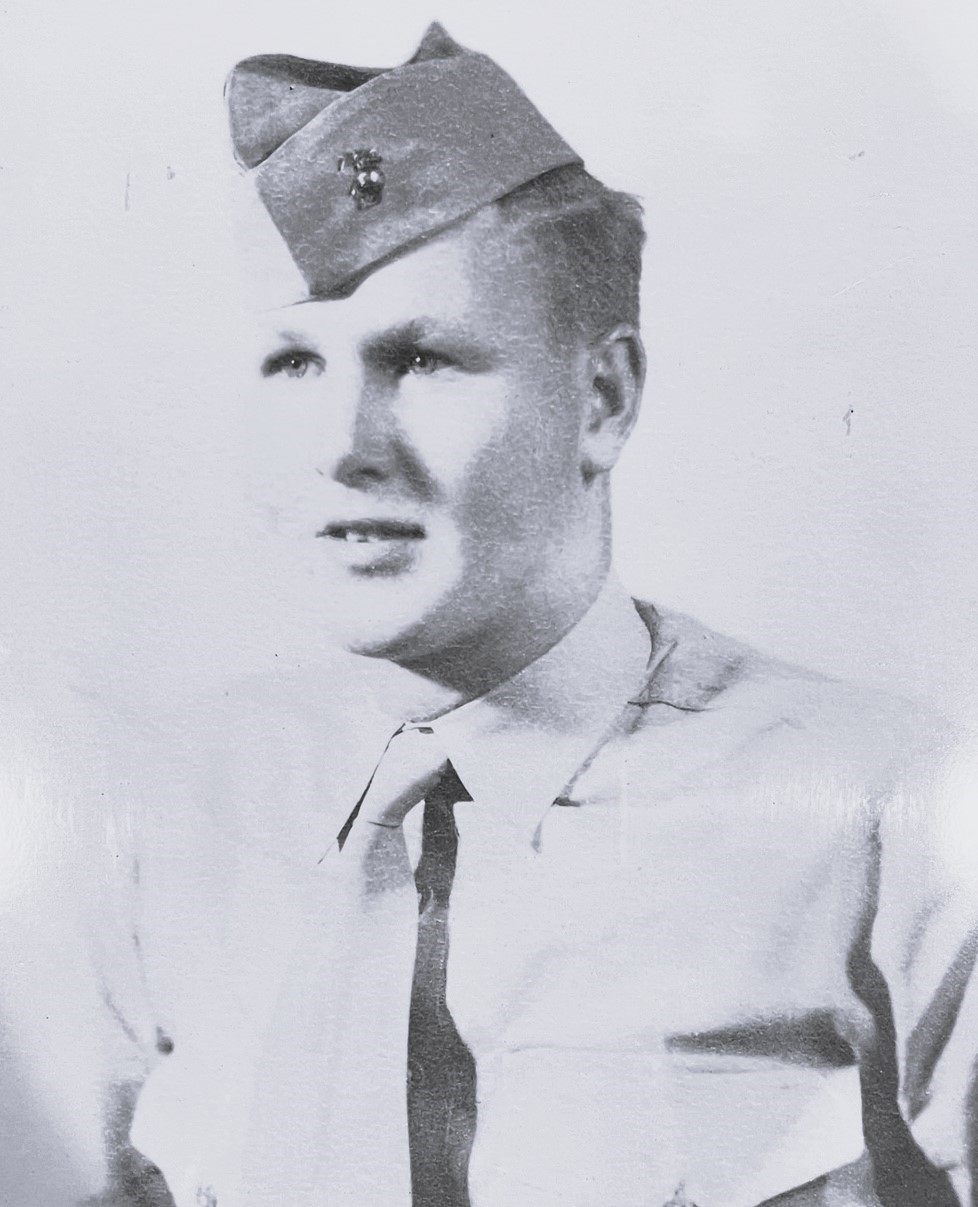 |
Grand Marshals for the 2025 Basilone Parade is Benjamin Jackson, who served as a Marine in World War II.
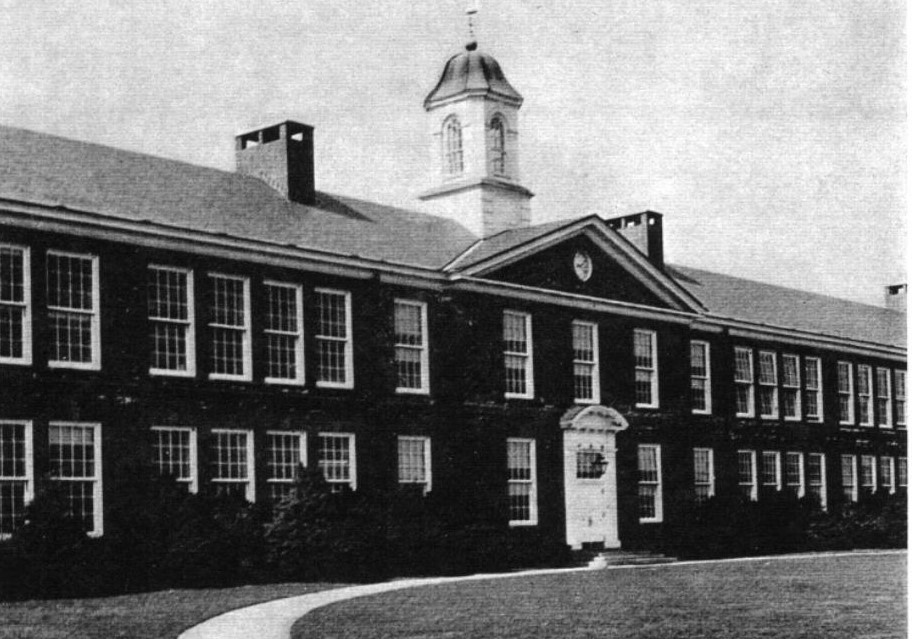
He attended Manasquan High School where he was an exceptional athlete, playing both basketball and football.
In 1943, after his Junior year, he left high school to volunteer to fight in World War II. He still received what was called a “war diploma” as the schools did not want to penalize the students who left before graduating in order to serve their country. He said “back then we were patriotic and we loved our country.”
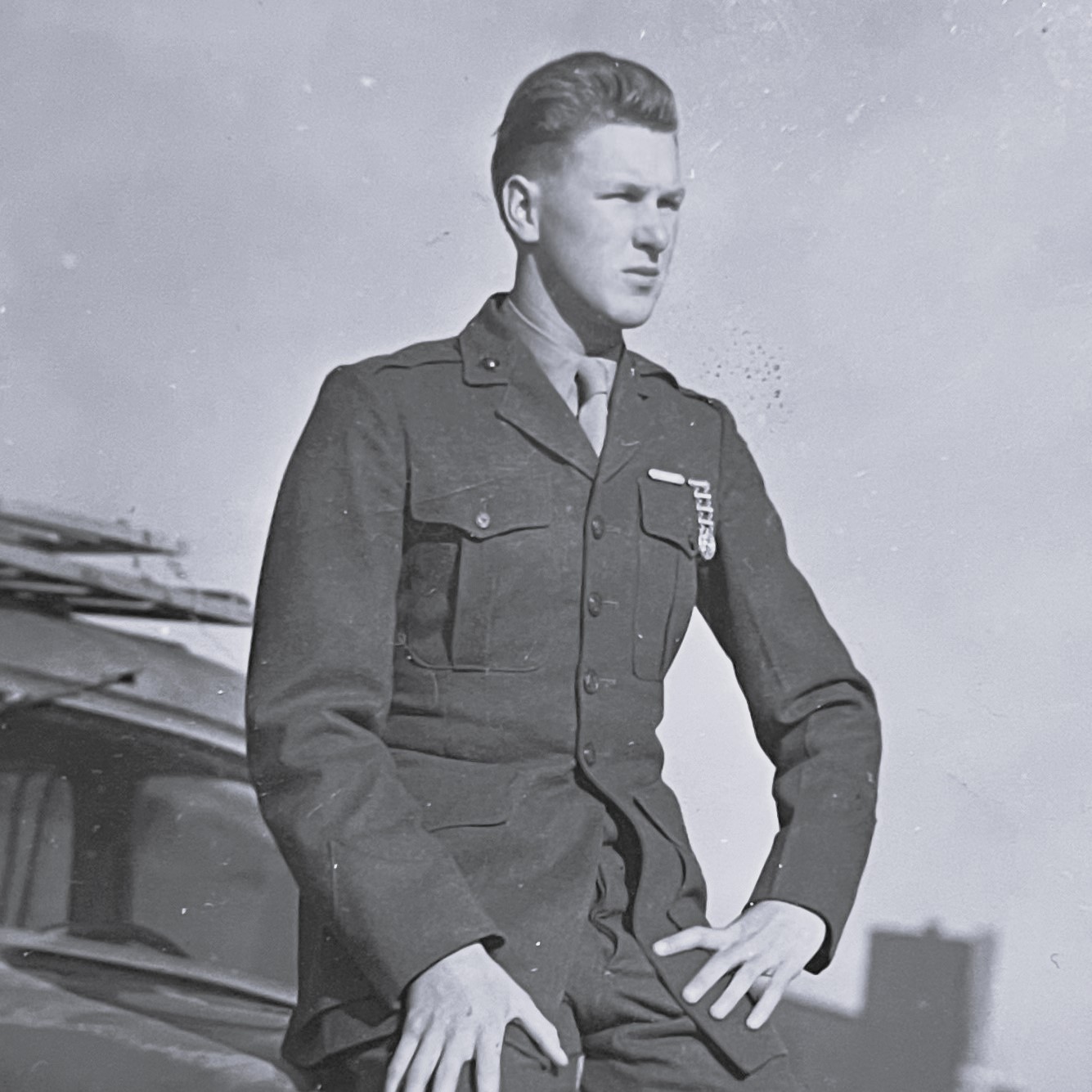
His training was at Camp Pendleton, California, with the Second Division. After that, at the beginning of 1943, he traveled from California to Hawaii aboard the USS Hornet for more training. It had been over one year since the Japanese attack at Pearl Harbor, but the wreckage was still visible.

He marched with three other Marines as the color guard. There at Pearl Harbor, Roosevelt met with his two Pacific commanders Admiral Chester Nimitz and General Douglas MacArthur for military planning.
of President Roosevelt
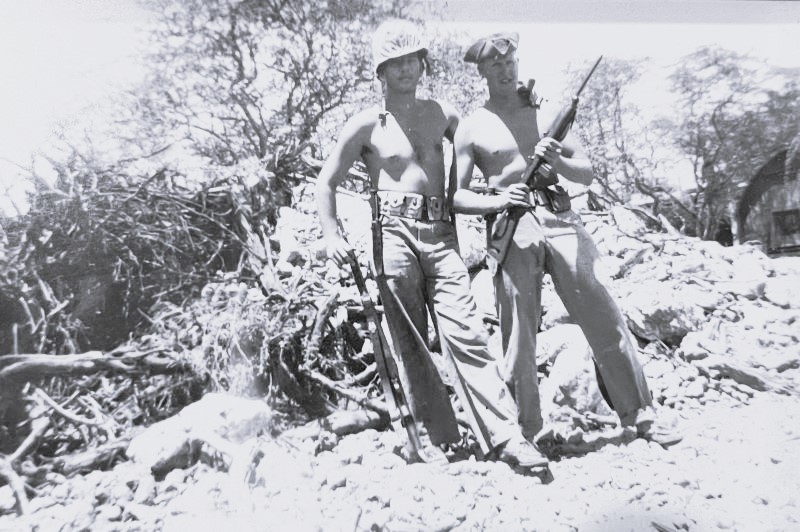
Benjamin said while he was in the infantry throughout the war he spent a lot of time on ships. His unit traveled on various types - LSIs, LSTs, troop ships, carriers, and others.
At sea there was a constant threat of being torpedoed by the Japanese submarines. This would result in them winding up in shark infested waters. There were other dangers at sea. Once a typhoon damaged and stranded his ship, the Joe C. S. Blackburn, on an island off the northeastern coast of New Guinea. The ship was towed to a special dock in Manus, New Guinea, and repaired with the soldiers remaining aboard.
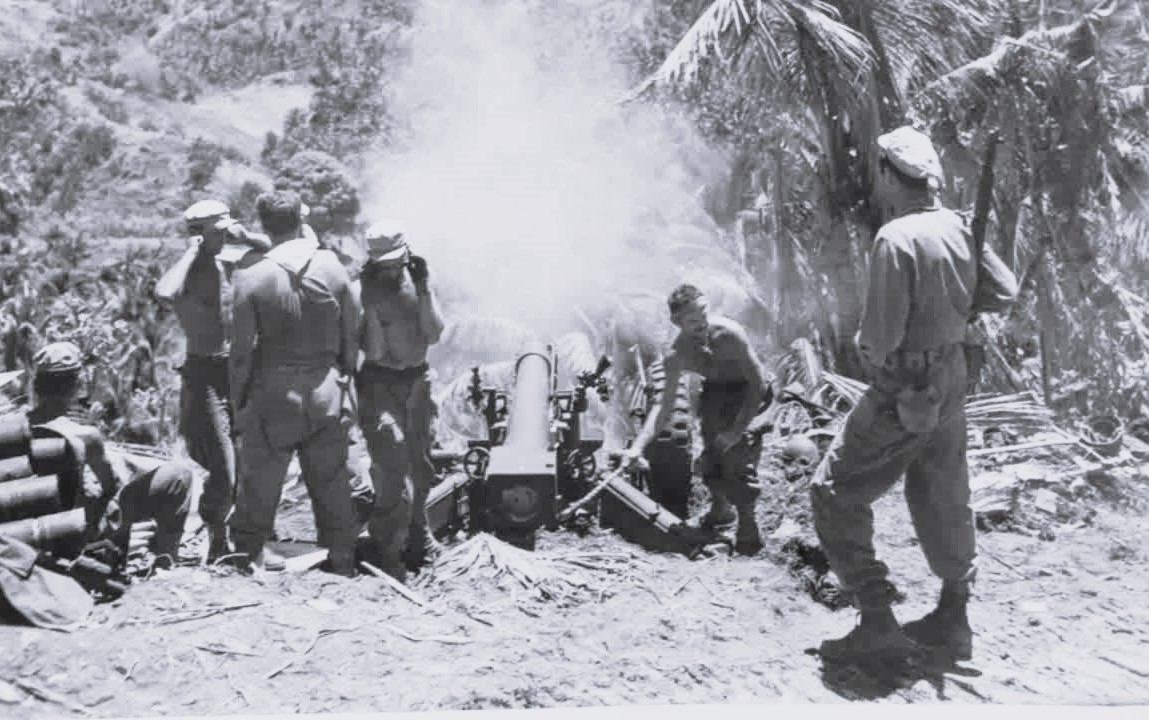
He saw intense fighting on the Philippine Islands of Mindanao and Luzon where his Marine Unit was the first to attack on what had been Japanese held islands.
The battle plan was for the battleships to fire extensively and the dive-bombers to machine gun the enemy positions. Once the shelling was over and all was quiet, then the Marines stormed the island.
He said after the heavy bombardment one would not expect a substantial counterattack, but the Japanese had experience in digging pillboxes and caves, thus they survived the bombing to fight back. The Marines would take many casualties before overrunning the Japanese positions. Benjamin said that he lost friends in these battles.
file photo

file photo
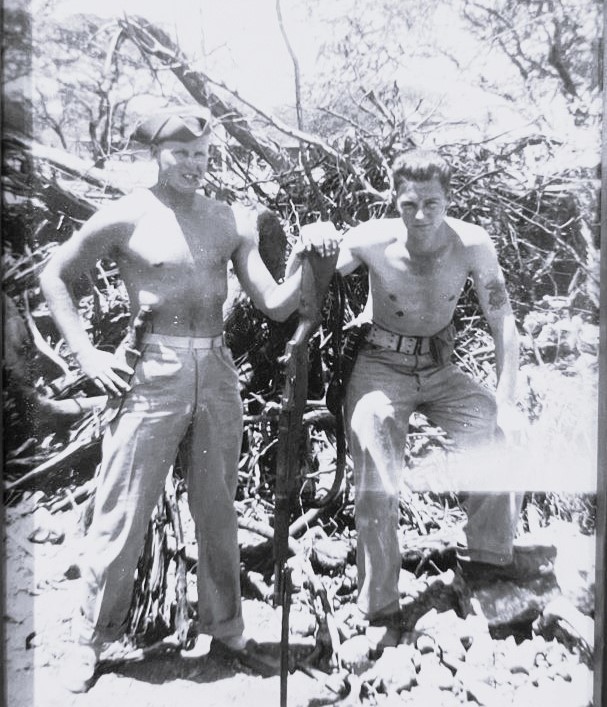
There were other dangers in the war besides the enemy. Benjamin Jackson contracted Malaria and almost died, but he was able to recover and return to duty.
Another time, while landing in the water, he cut his leg on coral resulting in an infection which caused his leg to swell up. He almost lost the leg, but again he recovered.

Other times the Japanese would sneak up at night and stab an American to death in his sleep.
The war was hell, but he never regretted his decision to become a Marine.
Mail was vital for morale.
He recalls one package that he received from his sister at Christmas.
It contained hardtack cheese, a product with a long shelf life ideal for shipping to troops, which he shared with fellow Marines.
He still remembers the moment when he heard about the death of President Roosevelt.
He was sitting on a coconut log watching a movie when it was turned off and the lights were put on. Then an announcement was made that President Roosevelt had died. They took the news hard; Benjamin remembers that several guys were crying.
and Admiral Chester Nimitz at Hawaii July 1944

When asked if the decision to drop the two nuclear bombs on Japan was the right decision, he replied that as far as the veterans are concerned there is no debate.
It was the right decision as it resulted in the Japanese surrender, saving their lives as the Japanese would have fought down to the last woman and child.

After the war he says he had trouble adjusting to civilian life – describing himself as a “wild man.” He drank and got into fights. He credits his wife Nancy, whom he married in 1948, with helping him to adjust. He said “She was a blessing”.
Nancy and Benjamin would have seven children. They lived in Chatham until Nancy passed away in 2004.

He says the Marines had the biggest effect on his life. He often wears a pin or something that identifies him as a Marine. At times in a restaurant some patriotic stranger will pick up the tab.
He still has occasional nightmares related to the memories of the war. But he says that after experiencing the war he could handle anything as he had survived the worst.

In 2015, he wrote a book about the business entitled “My memories of our Family Business.” Presently he is still involved in the business with his son, Ben, and his partner, Steve, running the company. Today, at 100 years old, he counts 15 Grandchildren and 18 Greatgrandchildren. He makes sure to send birthday cards to all of them.
Currently he lives in Fellowship Village in Basking Ridge. He considers himself a lucky man.